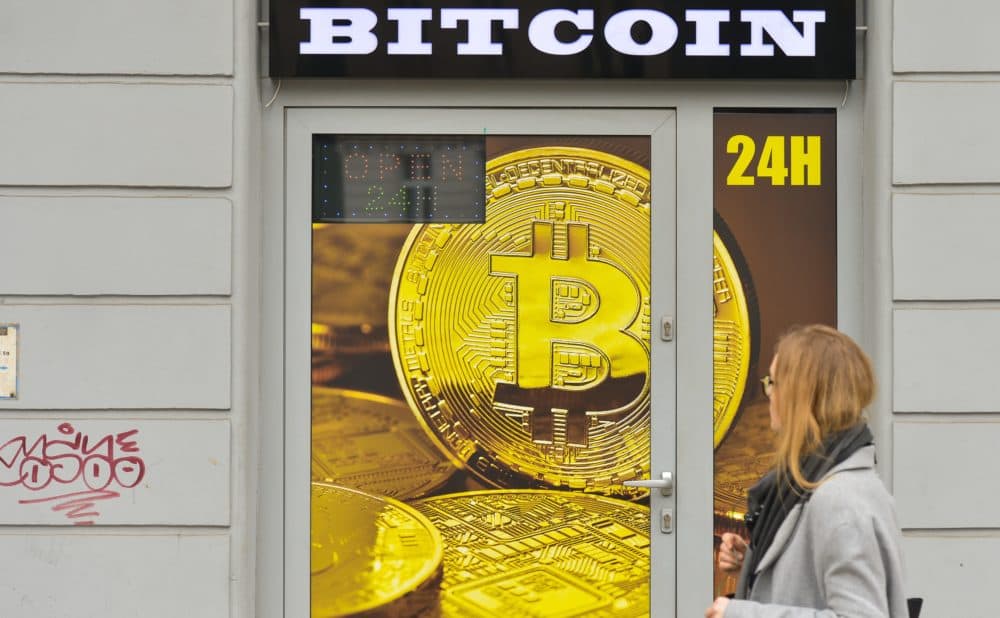Advertisement
Commentary
Bitcoin Is Terrible For The Planet. Now There Are Better Choices

Despite his professed commitment to sustainability, Tesla CEO Elon Musk recently invested heavily in a commodity whose extreme energy demands and unsavory associations have made it a planetary scourge.
Tesla sank $1.5 billion into Bitcoin, the world’s dominant cryptocurrency. Amid a developing climate crisis, Bitcoin is devouring more electricity than all of Argentina.
Thousands of high-powered custom computers, wired together in makeshift warehouses throughout the world, are consuming staggering amounts of energy -- more than 60% of which comes from fossil fuels — in pursuit of Bitcoin and other cryptocurrencies. These Bitcoin “miners” compete continuously to earn rewards for recording transactions in Bitcoin’s global ledger.
The design of Bitcoin ensures that miners must incur a computational cost — and thereby a monetary expense — to participate in the maintenance of the ledger. The result from a mining computation is nothing more than a number that demonstrates to the rest of the network that electricity was consumed. This expenditure of computational effort is the metric that enables miners to reach a consensus on the correct state of the ledger.
The digital cash reward for mining — and the amount of electricity that mining eats up -- increase as the price of Bitcoin climbs.
[T]he Bitcoin price surge that followed Tesla’s recent investment will likely cause a jump in Xinjiang’s electricity consumption.
Enthusiasts are quick to defend Bitcoin, claiming that mining uses energy that is renewable or would otherwise go to waste.
There’s a bit of truth in that. Mining operations are very mobile, and they gravitate to where there’s an excess of inexpensive power. A favorite example of Bitcoin proponents is China’s Sichuan province, home of the enormous Three Gorges Dam. In the rainy season, the dam’s power output far outstrips demand, so there is ample clean energy for mining at a low price.
But more typical is Xinjiang province, a global center for Bitcoin mining due to the availability of ultra-cheap coal-powered electricity. According to Bloomberg, the Bitcoin price surge that followed Tesla’s recent investment will likely cause a jump in Xinjiang’s electricity consumption.
Advocates counter that Bitcoin’s benefits merit its consumption of energy. They say there’s inherent value in a system that binds a digital currency to a payment platform, separate from any nation-state or central bank. They tout it being decentralized, discreet and immune from inflation.
Indeed, Bitcoin has proven useful in developing countries with shaky banking systems and unstable currencies. A small business in Kenya or Nigeria, for example, can import cell phones from Malaysia without banking fees and cumbersome currency exchanges. International commerce is an area where Bitcoin and other cryptocurrencies have flourished.
Bitcoin still commands strong support in libertarian circles, and that’s significant because right-wing ideologies are historically disdainful of government action to address climate change.
But other justifications of Bitcoin’s carbon footprint are dubious. You may put a high value on anonymity if you want to buy illegal drugs on the dark web or if you’re planning a ransomware attack, but for most of us, it’s not particularly advantageous. The claim about immunity from inflation has been disputed by mainstream economists, and it doesn’t mean much for developed economies that have seen meager inflation for decades.
It’s the often-cited rationale of independence from any national currency where Bitcoin’s ideological roots show through. The importance attached to Bitcoin not being bound to a central bank stems from its origins in the cypherpunk movement, a 1990’s Bay Area group focused on using cryptography to political ends. They experimented with cutting-edge concepts like anonymized digital cash that ultimately found their way into the seminal white paper that launched Bitcoin in 2008.
Bitcoin still commands strong support in libertarian circles, and that’s significant because right-wing ideologies are historically disdainful of government action to address climate change. David Golumbia’s "The Politics of Bitcoin" illuminates the deep connections between crypto-anarchist Bitcoin pioneers and the free-market fundamentalism that still pervades a substantial segment of the Bitcoin community.
The Bitcoin universe has expanded far beyond the cypherpunk world, mainly because it has become more of a speculative asset than a medium of exchange. Its market capitalization topped $1 trillion this past February. Risk-tolerant investors are undeterred by Bitcoin’s extreme price volatility.
If you prefer your cryptocurrency without the heaping side of greenhouse gas, you have other choices.
But the Bitcoin bulls are now dealing with formidable competitors. Online exchanges offer hundreds of smaller cryptocurrencies and derivatives, many of which avoid the mining cost that stigmatizes Bitcoin. Facebook is developing its own cryptocurrency, and more significantly, nations are launching blockchain-based digital currencies.
China’s pilot of the digital yuan is underway, and the digital euro is in its nascent stages. So it’s no surprise that the U.S. Federal Reserve is now saying the digital dollar is a priority for 2021.
What these new central bank digital currencies will mean for Bitcoin is a matter of debate. But one thing is certain: They will not require the onerous mining algorithm that drives Bitcoin’s exorbitant appetite for energy.
Bitcoin was a brilliant and elegant innovation — yet needlessly destructive to the planet. If you prefer your cryptocurrency without the heaping side of greenhouse gas, you have other choices.
Leave Bitcoin behind for Elon and the crypto-cowboys, and just hope that their bubble bursts.
